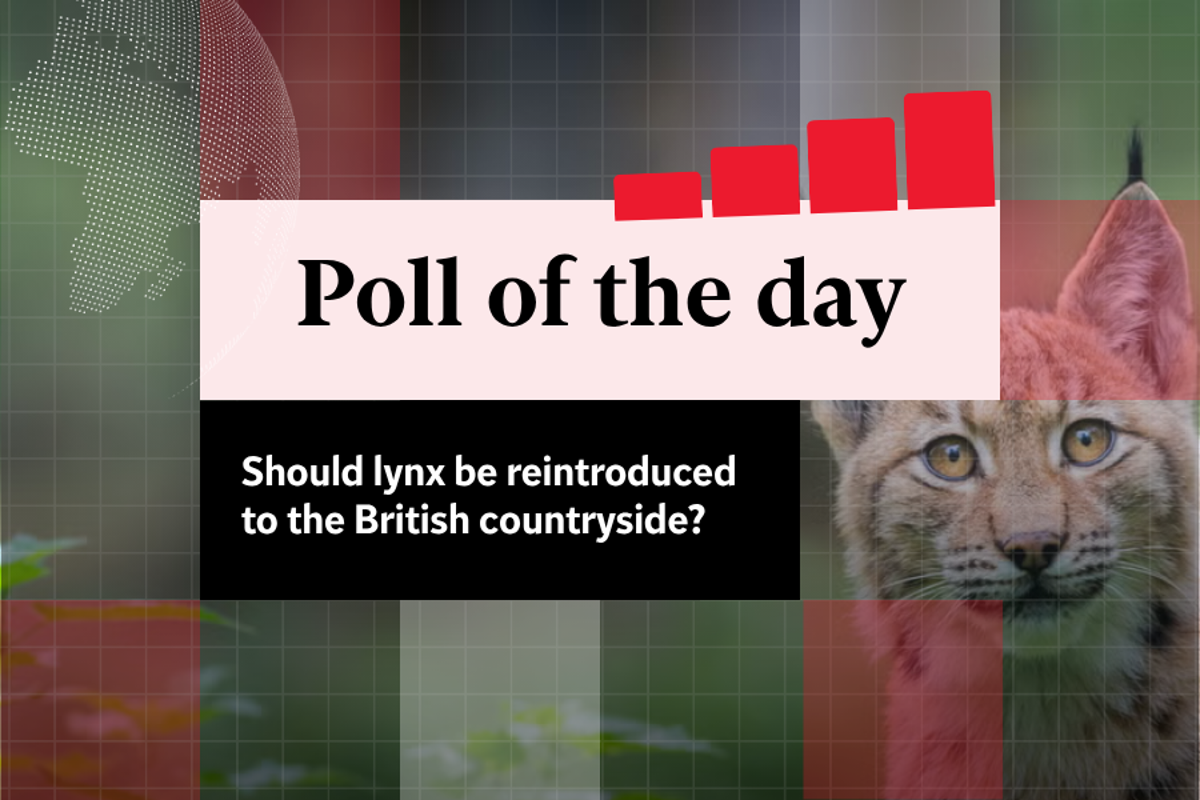Your support helps us to tell the story
From reproductive rights to climate change to Big Tech, The Independent is on the ground when the story is developing. Whether it’s investigating the financials of Elon Musk’s pro-Trump PAC or producing our latest documentary, ‘The A Word’, which shines a light on the American women fighting for reproductive rights, we know how important it is to parse out the facts from the messaging.
At such a critical moment in US history, we need reporters on the ground. Your donation allows us to keep sending journalists to speak to both sides of the story.
The Independent is trusted by Americans across the entire political spectrum. And unlike many other quality news outlets, we choose not to lock Americans out of our reporting and analysis with paywalls. We believe quality journalism should be available to everyone, paid for by those who can afford it.
Your support makes all the difference.Read more
Plans to reintroduce the Eurasian lynx to the British countryside are once again gaining momentum, as the government’s wildlife chief says he would be “absolutely delighted” to see the species return during his term.
Tony Juniper, chair of Natural England, has voiced support for renewed conversations around lynx reintroduction, calling for more public engagement to understand the potential impact on communities, landowners, and wildlife.
The comments follow a proposal by the Lynx UK Trust to bring the animals back to Kielder Forest in Northumberland, using individuals rescued from culls in Sweden.
Lynx, which have been extinct in Britain for over 1,000 years, are elusive forest-dwellers that prey on deer and rabbits.
Conservationists argue they could play a vital role in controlling deer populations, helping restore damaged woodlands and boosting biodiversity.
But opposition remains strong in some quarters, particularly among farming groups, with concerns over livestock safety, legal barriers, and public accountability.
Readers are already divided on the issue. Templer commented: “I would imagine sheep farmers in the area are thrilled at the prospect. I also wonder why lynx were hunted to extinction. Maybe there was a reason for that!”
Uriba, however, countered: “In areas where lynx have been reintroduced, like parts of Switzerland, Germany, and Slovenia, predation on livestock is extremely rare. In fact, lynx are more useful than harmful to farmers, as they help control deer populations that damage crops and young trees.”
As debate grows over whether Britain should welcome back once-extinct species – and who should decide – we want to know what you think.
Should the UK reintroduce animals like the lynx as part of a wider nature recovery strategy? Or are the risks and uncertainties still too great?
Vote in our poll and share your thoughts in the comments below.
